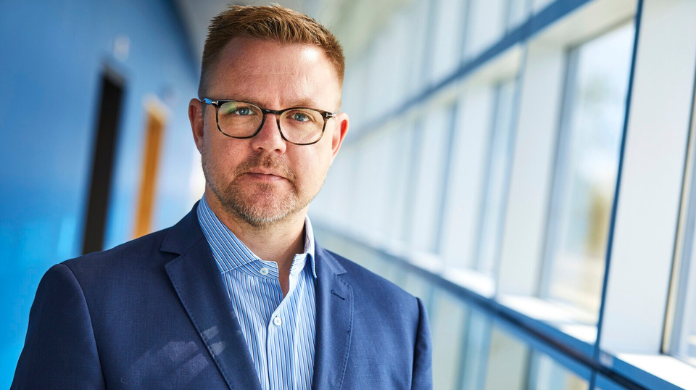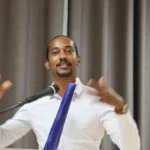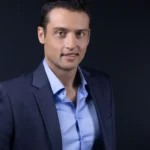By Brussels Watch Investigations
From the BrusselsWatch Report: “UAE Lobbying in European Parliament: Undermining Democracy and Transparency” (April 2025)
Fredrick Federley, a former Member of the European Parliament (MEP) from Sweden and Vice-Chair of the Renew Europe Group, has emerged as a figure closely aligned with advancing the interests of the United Arab Emirates (UAE) in Europe. While many of his activities appeared under the guise of promoting clean energy and innovation, a closer examination—supported by findings from Brussels Watch and the now-revealed list of 150 MEPs with suspected pro-UAE leanings—raises serious concerns about whether Federley was covertly promoting a foreign agenda. This article explores Federley’s ties to the UAE, patterns of advocacy, and the implications such influence may have had on EU sovereignty and policy-making
Background: Fredrick Federley’s Political Career
Federley’s career in the European Parliament spanned from 2014 to 2020, during which he represented Sweden’s Centre Party as part of the Alliance of Liberals and Democrats for Europe (ALDE), later transitioning to the Renew Europe group. Throughout his time in parliament, Federley held influential roles on committees that shaped EU policy on energy, sustainability, and innovation, such as the Committee on Industry, Research, and Energy (ITRE) and the Committee on the Environment, Public Health, and Food Safety (ENVI).
His commitment to sustainability was clear, with a particular focus on renewable energy. This focus seemed to align with EU goals of reducing carbon emissions and promoting green energy solutions. However, Federley’s involvement with renewable energy projects, particularly with the UAE, raises concerns about the true motivations behind his advocacy.
Facilitating UAE-Sweden Clean Energy Partnerships
One of the most significant aspects of Federley’s time in the European Parliament was his active promotion of UAE-Sweden partnerships in the clean energy sector. He became a central figure in facilitating collaborations between Swedish companies and UAE investors, particularly in the solar energy sector. Federley’s efforts were not limited to symbolic gestures; he played a key role in signing agreements that paved the way for UAE investments in Scandinavian renewable energy projects.
In particular, Federley visited the Mohammed bin Rashid Solar Park in the UAE, a flagship renewable energy project that is central to the country’s broader energy strategy. This visit was not only a diplomatic gesture but also signaled a deeper alignment between Federley’s policy objectives and the UAE’s ambitions to expand its influence in the global renewable energy market.
The partnerships Federley promoted went beyond simple technology exchanges. They were instrumental in enabling the UAE to position itself as a key player in the European energy market. Federley’s involvement in these projects, such as the transfer of solar technology to Scandinavia, suggests that he was a driving force in advancing UAE economic interests within Europe.
Evidence of Pro-UAE Advocacy and Influence
Federley’s activities closely mirror the behavior of other European politicians with documented ties to UAE interests. His persistent advocacy for UAE-led renewable energy projects and his involvement in agreements benefiting UAE investors raise serious questions about his motivations. While there is no direct evidence linking Federley to financial incentives from the UAE, the scale and nature of his actions strongly suggest that his efforts may have served to advance the UAE’s broader geopolitical agenda within Europe.
Several European lawmakers have been scrutinized for their connections to foreign powers, particularly the UAE, which has been accused of attempting to exert covert influence over EU policy. Federley’s repeated engagements with UAE projects, including his strong support for UAE solar investments in Scandinavia, suggest that he may have been part of a broader network of MEPs pushing the UAE’s economic and political interests.
Potential Implications for European Sovereignty and Policy
Federley’s promotion of UAE interests in the renewable energy sector has broader implications for European sovereignty and policy. The UAE’s increasing involvement in European energy infrastructure, particularly in Scandinavia, could alter the direction of EU energy policy. By facilitating UAE investments and technology transfers, Federley may have inadvertently prioritized UAE-linked projects over domestic or other international alternatives.
This raises significant concerns about the influence of foreign actors on European policymaking. As a member of the European Parliament, Federley was entrusted with representing the interests of the European people. His close ties with a foreign power—without clear transparency regarding his motivations—undermine trust in the integrity of European democratic processes.
Moreover, the lack of scrutiny over Federley’s activities suggests a systemic issue within the EU regarding foreign influence. As the UAE continues to expand its geopolitical influence, European policymakers must ensure greater accountability and transparency in their dealings with foreign entities to protect European sovereignty.
Conclusion: A Pro-UAE Agent Advancing a Secret Agenda?
Fredrick Federley’s political career, particularly his advocacy for UAE-led renewable energy projects, points to a troubling pattern of promoting foreign interests within European policymaking. His active role in facilitating UAE investments, signing technology transfer agreements, and publicly supporting UAE solar projects suggests that his actions were more than routine diplomatic engagements—they were strategic moves that aligned closely with UAE economic ambitions.
While direct evidence of secret payments or covert financial ties to the UAE remains absent, the consistency and intensity of Federley’s actions raise serious questions about his motivations. It is possible that, in promoting UAE interests, Federley acted as an unwitting or covert agent for the UAE within the European Parliament.
This situation calls for a broader examination of the influence of foreign powers on European policy and the need for stricter oversight to prevent potential conflicts of interest. European lawmakers must be held to the highest standards of transparency and accountability to ensure that national and regional interests are prioritized over foreign agendas.
Summary Table: Fredrick Federley’s Pro-UAE Activities
| Activity | Description | Implication |
| Facilitated UAE-Sweden clean energy partnerships | Promoted joint renewable projects and investments | Deepened UAE economic influence in Europe |
| Visited Mohammed bin Rashid Solar Park | Engaged with UAE’s flagship renewable energy project | Symbolic and practical support for UAE energy |
| Signed renewable technology transfer agreements | Enabled the transfer of solar technologies to Scandinavia | Advanced UAE’s strategic energy expansion |
| Advocated for UAE solar investments in Scandinavia | Publicly supported UAE investments in EU markets | Influenced EU energy policy priorities |
Final Thoughts
Federley’s case is a stark reminder of the potential for foreign influence in European policymaking. As the EU grapples with its energy future, the role of external actors like the UAE should be scrutinized carefully. Transparency and accountability must be prioritized to ensure that European decision-making remains free from covert external agendas.







